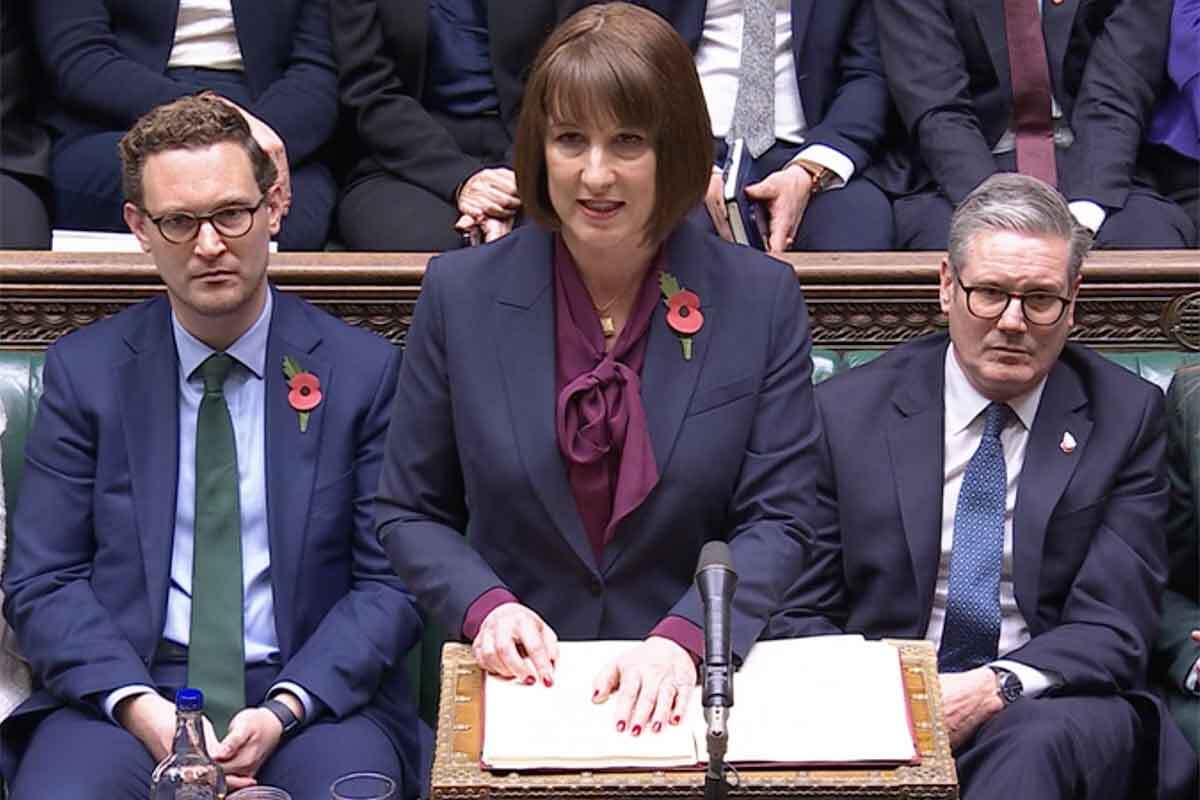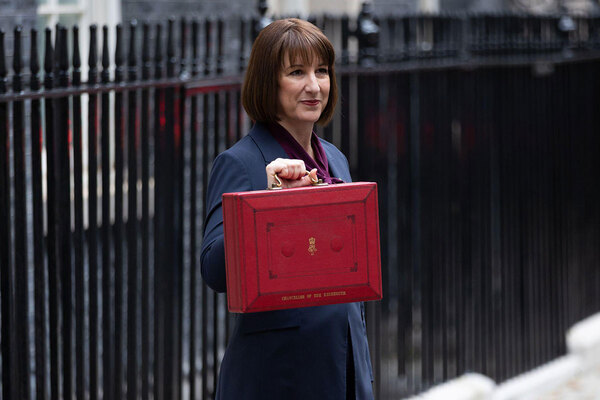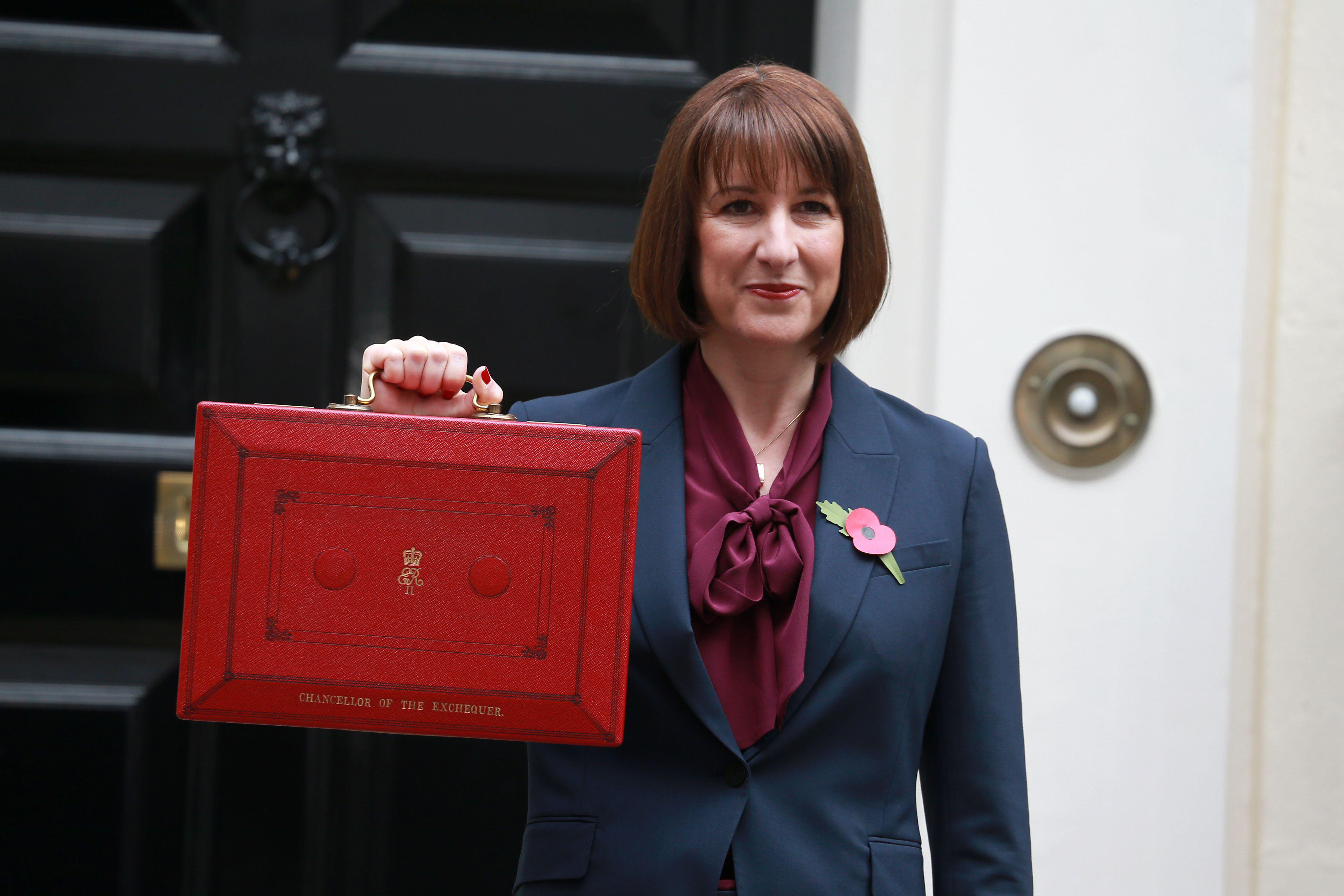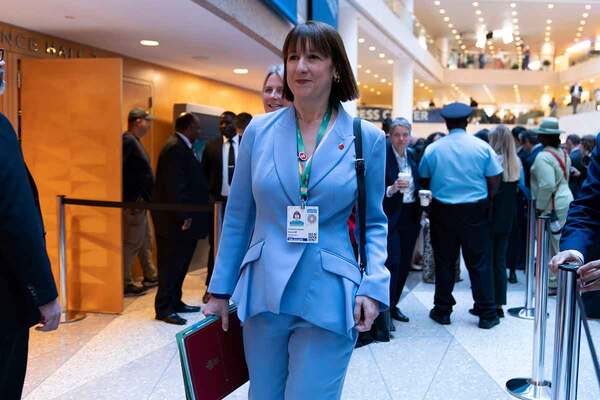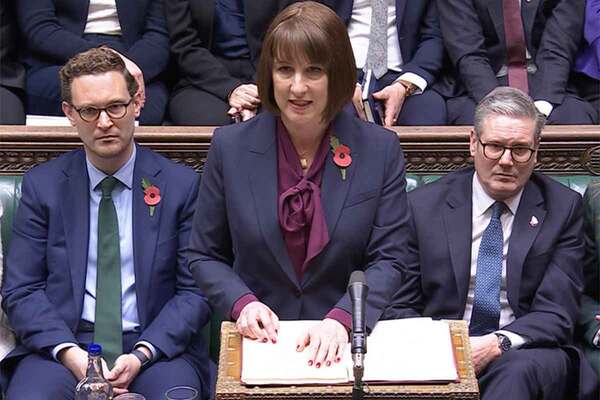Reeves resets fiscal rules to ‘rebuild Britain’ with 10-year infrastructure plan and biennial Spending Reviews
The chancellor of the exchequer has used her first Budget to reform the fiscal framework within which the government operates, freeing up capacity for public investment including a “10-year infrastructure investment plan”.
Confirming previously trailed rule changes, Rachel Reeves said yesterday that government debt would now be measured as ‘net financial debt’, meaning that not only liabilities on the government balance sheet, but also financial assets, are counted.
The changes will allow the government to maintain its manifesto commitment to target debt falling as a share of the economy, while at the same time increasing investment in the public sector.
Intended to restore economic stability and “begin a decade of national renewal”, the government said that its Budget would boost public investment by more than £100bn over the next five years across transport, schools and hospitals while keeping debt on a downward path.
As previously announced, a new ‘National Infrastructure and Service Transformation Authority (NISTA)’ will be established to be operational by spring next year, alongside the multi-year Spending Review.
The new body, which will combine the functions of the existing National Infrastructure Commission and the Infrastructure and Projects Authority to bring strategy and delivery under one roof, will lead on a new 10-year infrastructure strategy, the government has said.
NISTA will have an “enhanced role in supporting major projects, including validating business cases prior to HM Treasury funding approval”, Budget documents confirmed yesterday.
Net financial debt
Setting out her new financial framework, Ms Reeves said that the adoption of the net financial debt measure, which since 2016 has been measured by the Office for National Statistics (ONS) and forecast by the Office for Budget Responsibility (OBR), would bring the UK into line with practices in Germany, France and Japan.
“For too long, we have seen Conservative chancellors cut investments and raid capital budgets to plug gaps in day-to-day spending. The result is clear for all to see: hospitals without the equipment they need, school buildings not fit for our children, a desperate lack of affordable housing, economic growth held back at every turn.”
Ms Reeves – whose speech also celebrated her role as the UK’s first female chancellor – referred to discussions held as part of the International Monetary Fund’s annual meeting in Washington last week, where she said the organisation made clear that “more public investment is badly needed in the UK”.
“Net financial debt recognises that government investment delivers returns for taxpayers by counting not just the liabilities on the government’s balance sheet, but the financial assets, too,” Ms Reeves said. “This means that we count the benefits of that investment, not just the costs, and we free up our institutions to invest – just as they do in Germany, France and Japan.”
Fiscal rules and ‘guardrails’
As part of the changes confirmed yesterday, the Labour government is introducing two new fiscal rules to temper spending, as well as “key guardrails” to ensure capital spending delivers value for money.
The first of the two fiscal rules is a ‘stability rule’ intended to “move the current budget into balance”. Under this, day-to-day spending will be met by revenue and government borrowing will only be used for investment.
The second is the ‘investment rule’, designed to reduce net financial debt, measured as public sector net financial liabilities, as a proportion of GDP. As part of this Budget, these rules will need to be met by 2029-30.
In its budget assessment yesterday, the OBR set out that in its central forecast, “the proposed fiscal mandate and supplementary targets are on course to be met, but by relatively small margins”.
The ‘guardrails’ introduced include “strengthening the role of institutions to improve infrastructure delivery”, Ms Reeves said.
New financial investments will be delivered by “expert bodies” such as the National Wealth Fund (NWF) and the British Business Bank, which must earn a rate of return at least as large as that on gilts, to cover the cost of their financing.
In addition, the government will “improve certainty by setting capital budgets for five years and extending them at every Spending Review every two years”, the chancellor said.
Finally, the government will also ensure greater transparency on capital spending with “robust annual reporting for financial investments based on accounts audited by the National Audit Office and made available to the Office for Budget Responsibility at every forecast,” Ms Reeves said.
“Taken together with our stability rule, these fiscal rules will ensure that our public finances are on a firm footing, while enabling us to invest prudently alongside business,” she added. “The capital plans that I now set out to drive growth across our country and repair the fabric of our nation are only possible because of our investment rule.”
Value for money
Ms Reeves also used her Budget speech to confirm the formal launch of a new ‘Office for Value for Money’ (OVfM), with the direct ministerial appointment of David Goldstone as independent chair. Mr Goldstone holds a number of non-executive roles, and was formerly chief operating officer at the Ministry of Defence and chief executive of the Houses of Parliament Restoration and Renewal Delivery Authority. At the OVfM, his new role will include advising the chancellor on the Spending Review.
‘Most important’ mission
The chancellor said that her government’s first and “most important” mission was to restore economic stability, but that its second was “increasing investment and building new infrastructure” which would be vital to productivity. “We are catalysing £70bn of investment through our National Wealth Fund, and we are transforming our planning rules to get Britain’s building again realise their potential.”
The NWF, known until 14 October as the National Infrastructure Bank, is wholly owned by the Treasury and backed by £27.8bn of its capital – an increase of £5.8bn under its previous name. The £70bn Ms Reeves referred to is a previously announced ambition to attract this sum of private investment into the UK’s clean energy and “growth industries”.
Last month, two major lenders to the social housing sector announced deals to support the sector’s decarbonisation efforts through loans partly guaranteed by the NWF.
Ms Reeves’ Budget statement to the Commons yesterday – for which a number of key policy measures had been announced in advance – was preceded by a reprimand from the deputy speaker that “premature disclosure” of its contents was regarded as a “supreme discourtesy to this house”.
Previously announced policies confirmed yesterday included the additional £500m of funding for the Affordable Homes Programme and reductions in Right to Buy discounts (and the ability for councils to keep receipts in full).
As previously announced, a proposed five-year rent settlement at Consumer Price Index plus one per cent will also now be consulted on, with the potential impact of a 10-year settlement also under consideration.
Elsewhere in the chancellor’s speech, a raft of measures intended to support low-income households was also confirmed, while other policies inherited from the previous government, such as a return to a freeze in Local Housing Allowance from April, were left unchanged.
Hear key takeaways from the Budget from expert economists Paul Johnson, director of the Institute for Fiscal Studies, and Yael Selfin, vice-chair and chief economist at KPMG, at the Social Housing Annual Conference on 30 November in London, in a programme chaired by Newsnight’s political editor Nick Watt.
Other expert speakers at the event include Florence Eshalomi MP, chair of the Housing, Communities and Local Government Committee; Bernadette Conroy, chair of the Regulator of Social Housing; and Shahi Islam, director of affordable housing at Homes England.
For more information, and to book while spaces remain, click here.
Sign up for Social Housing’s weekly news bulletin
Social Housing’s weekly news bulletin delivers the latest news and insight across finance and funding, regulation and governance, policy and strategy, straight to your inbox. Meanwhile, news alerts bring you the biggest stories as they land.
Already have an account? Click here to manage your newsletters.
RELATED
